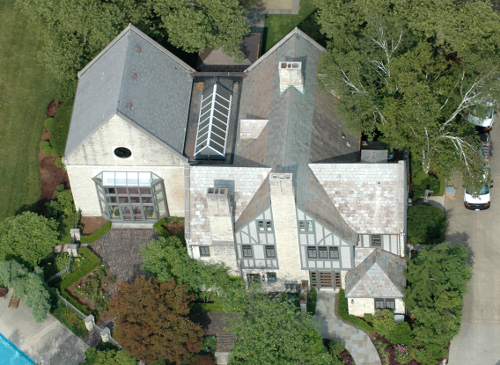When Roderick J. McDavis became Ohio University's president a decade ago, he moved into 29 Park Place, a 7,000-square-foot, 2 1/2-story home at the heart of OU's campus in Athens.
The rent is free, and McDavis' contract says he has to live in the house. Plus, it's convenient for McDavis, administrators, faculty members and students to have him so close to the office.
So should he pay income taxes on the house as a benefit? Many Ohio universities say no. The Internal Revenue Service says yes.
An ongoing IRS audit of OU found that McDavis should pay taxes on his free residency at OU. The university's board of trustees thought otherwise, voting last month to cover the “unexpected” cost: about $19,000 in federal, state and local taxes for this year. The university is also going to cover the taxes on McDavis' term life insurance, which the audit also said was taxable, bringing the total to about $30,000.
Nationally, presidential pay at colleges and universities is consistently watched, ranked and used to draw conclusions about institutions and individuals. But where presidents live — and what it costs — isn't under the same microscope as their compensation.
Including his salary, bonuses and other pay, McDavis made nearly $600,000 during the 2013 fiscal year.
OU officials say it's unclear what the total tax burden will be, but the board of trustees will cover whatever costs arise. They called the audit “not exactly routine,” but “not uncommon.” The IRS would not comment.
Meanwhile, several leaders of other Ohio universities with arrangements similar or identical to OU's are still living tax-free, The Dispatch found. Ohio State University and at least five other universities own their presidents' residences, and none asks its president to pay rent or taxes.
The tax code has three conditions that employers must meet for such an arrangement to be tax-free: Lodging must be furnished on an employer's business premises, which some universities believe can include off-campus houses; it must be furnished for the employer's convenience; and the employee must accept it as a condition of employment.
It's unknown which of those conditions the IRS said McDavis was not meeting. McDavis' contract says he must live at 29 Park Place, which is on the campus. That suggests the IRS believes that McDavis doesn't live on campus for the university's “convenience,” said Ted Johnson, a Columbus-based tax and litigation support partner for Parms + Company.
It's unclear how the move will affect other university presidents.
“If what the IRS concluded when they audited OU is correct, you've got a ticking time bomb with these other universities,” Johnson said. “The IRS is aware of that, and if they're smart, they will see this as a possible audit point.”
Looking away from OU toward its rival in western Ohio illustrates Johnson's point. Like McDavis, Miami University President David Hodge lives rent-free in a home the school provides. But Hodge isn't taxed.
His contract requires him to live there. And his housing is provided for Miami's convenience, said Claire Wagner, a Miami spokeswoman.
“So, his circumstance meets the IRS regulations regarding employer-provided university housing in that it is not taxable to the employee,” she said.
OU can't appeal the IRS decision until the audit is closed, but university officials continue to discuss it with the agency.
“IRS interpretations on this point are somewhat ambiguous and continuously evolving, evidenced by the fact that some universities have treated on-campus presidential housing as exempt from taxable income under the IRS Code, while others have not,” said Jennifer Krisch, an OU spokeswoman, in an email.
At Bowling Green State University, the president has an arrangement similar to Miami's: no taxes, although the university-owned residence is off-campus.
But Bowling Green officials have been aware of the threat of taxation for years. They added a clause to each presidential contract since 1995 that promises to cover any cost if the home becomes “subject to taxation,” said David Kielmeyer, a BGSU spokesman.
Other Ohio universities that own their presidential house are Central State, Shawnee State and Youngstown State.
As for OU compensating McDavis for his unexpected tax burden, private companies often cover some or all of the tax burden for their chief executive, said Ted Johnson, the tax lawyer.
Bruce Johnson, president of the Inter-University Council of Ohio, which represents Ohio's public universities in Columbus, said that's reasonable. (He and Ted Johnson are not related.)
“If you want to require someone to live somewhere, you probably need to compensate them for it,” he said.
————————–
Copyright 2014 – The Columbus Dispatch, Ohio
Thanks for reading CPA Practice Advisor!
Subscribe Already registered? Log In
Need more information? Read the FAQs
Tags: Income Taxes, IRS




